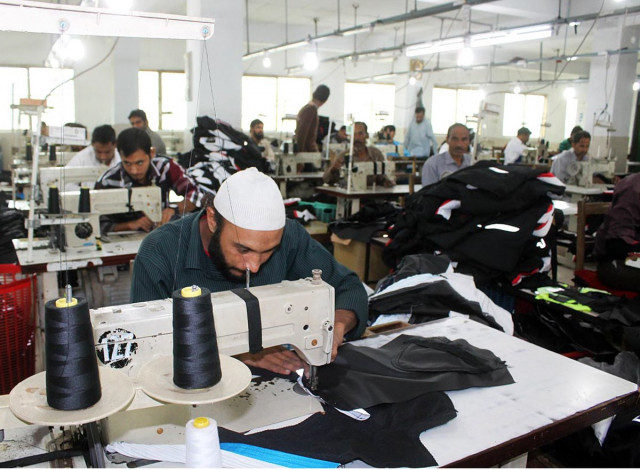Labour leaders reject Sindh labour code
NTUF, HBWWF accuse ILO and provincial governments of facilitating anti-worker reforms through backdoor tactics

All conspiracies to impose the Sindh Labour Code through the backdoor will be defeated. Ensuring a living wage is essential for industrial peace, and any attempt to enforce lawlessness in factories will be met with strong resistance from workers.
These views were expressed by labour leaders during a "Labour Conference" of the textile, garment, shoe, and leather sectors, organised by the National Trade Union Federation (NTUF) Pakistan and the Home-Based Women Workers Federation (HBWWF). The conference, chaired by HBWWF General Secretary Comrade Zehra Khan, saw participation from workers, including home-based workers from major industrial zones of the city on Sunday.
Riaz Abbasi of the NTUF strongly condemned the International Labour Organization's (ILO) collaboration with provincial governments under the guise of the Punjab and Sindh Labour Codes, accusing it of abolishing workers' legal right to permanent employment. He asserted that the real objective of the code was to legitimise the exploitative contract system, suppress workers' right to strike and unionise, and ultimately weaken their collective power.
Abbasi added that the proposed code legitimised bonded labour through the deceptive concept of "advance loans," effectively institutionalising the buying and selling of workers. He argued it contradicted the Bonded Labour System (Abolition) Act of 1992, violated the Constitution of Pakistan, defied ILO conventions, and threatened to reintroduce slavery under the guise of legal reform.
Zehra Khan of HBWWF said that the code seeks to protect the interests of industrialists and bureaucrats-not workers. She accused the ILO, in cooperation with international financial institutions and the World Bank, of playing a neocolonial role in suppressing worker resistance in the Global South.
Khan emphasised that both federal and provincial governments had become facilitators of this anti-worker agenda. She said the Punjab government, continuing its anti-labour tradition, had already approved the code despite widespread objections and was pushing it through the assembly. In Sindh, the government sent the draft to the law department without consulting labour organisations, contrary to earlier commitments. Following strong protests, the provincial labour minister promised to share the final draft with workers' representatives.
Qamar-ul-Hassan of IUF warned the PPP-led Sindh government not to follow Punjab's repressive path, cautioning that doing so would bring lasting disgrace for imposing such an anti-worker code by force.
He also expressed grave concern over skyrocketing inflation, which has made necessities unaffordable. Under pressure from international financial institutions, the state, he said, was abandoning its constitutional obligations, including free education and healthcare, employment guarantees, housing, affordable transport, electricity, and water. The struggle to access these basic rights was making life unbearable for ordinary people.



















COMMENTS
Comments are moderated and generally will be posted if they are on-topic and not abusive.
For more information, please see our Comments FAQ